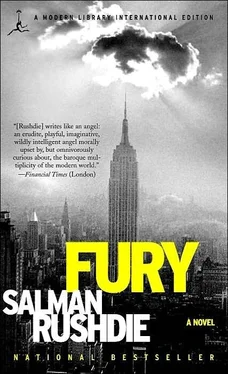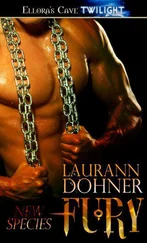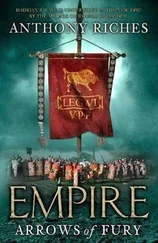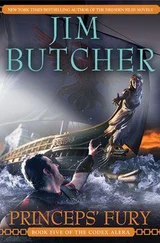Salman Rushdie - Fury
Здесь есть возможность читать онлайн «Salman Rushdie - Fury» весь текст электронной книги совершенно бесплатно (целиком полную версию без сокращений). В некоторых случаях можно слушать аудио, скачать через торрент в формате fb2 и присутствует краткое содержание. Город: New York, Год выпуска: 2002, ISBN: 2002, Издательство: Random House Publishing Group, Жанр: Современная проза, на английском языке. Описание произведения, (предисловие) а так же отзывы посетителей доступны на портале библиотеки ЛибКат.
- Название:Fury
- Автор:
- Издательство:Random House Publishing Group
- Жанр:
- Год:2002
- Город:New York
- ISBN:0679783504
- Рейтинг книги:5 / 5. Голосов: 1
-
Избранное:Добавить в избранное
- Отзывы:
-
Ваша оценка:
- 100
- 1
- 2
- 3
- 4
- 5
Fury: краткое содержание, описание и аннотация
Предлагаем к чтению аннотацию, описание, краткое содержание или предисловие (зависит от того, что написал сам автор книги «Fury»). Если вы не нашли необходимую информацию о книге — напишите в комментариях, мы постараемся отыскать её.
Fury — читать онлайн бесплатно полную книгу (весь текст) целиком
Ниже представлен текст книги, разбитый по страницам. Система сохранения места последней прочитанной страницы, позволяет с удобством читать онлайн бесплатно книгу «Fury», без необходимости каждый раз заново искать на чём Вы остановились. Поставьте закладку, и сможете в любой момент перейти на страницу, на которой закончили чтение.
Интервал:
Закладка:
And what if, Solanka wildly conjectured, she was feeding off his fury? What if she was hungriest for what he feared most, the goblin anger within? For she was driven by fury also, he knew that, by the wild imperative fury of her hidden need. At that moment of revelation Solanka could easily have believed that this beautiful, accursed girl, whose weight was moving with such suggestive languor on his lap, whose fingertips touched his chest hair as faintly as a summer breeze and whose lips were working softly at his throat, might actually be the very incarnation of a Fury, one of the three deadly sisters, the scourges of mankind. Fury was their divine nature and boiling human wrath their favorite food. He could have persuaded himself that behind her low whispers, beneath her unfailingly even tempered tones, he could hear the Erinnyes’ shrieks.
Another page of her back-story revealed itself to him. Here was the poet Milo with his weak heart. This gifted, driven man had ignored all medical advice and continued, with an almost ludicrous excessiveness, to drink, smoke, and womanize. His daughter had offered an explanation of Conradian grandeur for this behavior: life must be lived until it can be lived no more. But as Solanka’s eyes opened he saw a different picture of the poet, a portrait of the artist fleeing into excess from grievous sin, from what he must have daily believed to be his soul’s death, its condemnation for all eternity to the most agonizing circle of Hell. Then came that last journey, Papi Milo’s suicidal flight toward his murderous namesake. This, too, now conveyed to Malik Solanka something other than Mila had made it mean. Fleeing one evil, Milo had gone to face what he thought of as the lesser peril. Escaping the consuming Fury, his daughter, he ran toward his full, unabbreviated name, toward himself. Mila, thought Solanka, you probably drove your maddened father to his death. And what, now, might you have in store for me?
He knew one frightening answer to that. At least one veil still hung between them, over not her story but his. He had known from the first minute of this illicit liaison that he was playing with fire, that everything he had driven deep down within himself was being stirred, the seals were being broken one by one, and that the past, which had almost destroyed him once before, might yet be given a second chance to finish the job. Between this new, unlooked—for story and that old, suppressed tale the unarticulated resonances echoed. This question of dollification. The matter of allowing oneself to be. Of having no choice but. Of the slavery of childhood when. Of need: this one’s that one’s most inexorable. Of the power of doctors to. Of the child’s impotence in the face of. Of the innocence of children in. Of the child’s guilt, its fault, its most grievous fault. Above all the matter of sentences that must never be completed, because to complete them would release the fury, and the crater of that explosion would consume everything at hand.
Oh, weakness, weakness! He still couldn’t refuse her. Even knowing her as he now did, even understanding her true capabilities and intuiting his possible peril, he couldn’t send her away. A mortal who makes love to a goddess is doomed, but once chosen cannot avoid his fate. She continued to visit him, all dolled up, just the way he wanted her, and every day there was progress. The polar ice-cap was melting. Soon the level of the ocean would rise too high and they would surely drown.
When he left the apartment nowadays he felt like an ancient sleeper, rising. Outside, in America, everything was too bright, too loud, too strange. The city had come out in a rash of painfully punning cows. At Lincoln Center Solanka ran into Moozart and Moodama Butterfly. Outside the Beacon Theatre a trio of horned and uddered divas had taken up residence: Whitney Mooston, Mooriah Cowrey, and Bette Midler (the Bovine Miss M). Bewildered by this infestation of paronomasticating livestock, Professor Solanka suddenly felt like a visitor from Lilliput-Blefuscu or the moon or, to be straightforward, London. He was alienated, too, by the postage stamps, by the monthly, rather than quarterly, payment of gas, electricity, and telephone bills, by the unknown brands of candy in the stores (Twinkies, Ho Hos, Ring Pops), by the words “candy” and “stores,” by the armed policemen on the streets, by the anonymous faces in magazines, faces that all Americans somehow recognized at once, by the indecipherable words of popular songs which American ears could apparently make out without strain, by the end-loaded pronunciation of names like Farrar, Harrell, Caudell, by the broadly spoken e’s that turned expression into axprassion, I’ll get the check into Il1gat the check; by, in short, the sheer immensity of his ignorance of the engulfing melee of ordinary American life. Little Brain’s memoirs filled bookstore windows here as well as in Britain, but that brought him no joy. The successful writers of the moment were unknown to him. Eggers, Pilcher: they sounded like they belonged on a restaurant menu, not a bestseller list.
Eddie Ford was often to be seen sitting alone on the neighboring stoop as Professor Solanka returned home—the websypders were evidently busy with their nets—and in the banked fire of the blond centurion’s slow-burn gaze Malik Solanka imagined he saw the belated beginnings of suspicion. Nothing was said between them, however. They nodded at each other briefly and left it at that. Then Malik entered his paneled retreat and waited for his deity to come. He took up his place in the large leather armchair that had become their preferred place of ease and set upon his lap the red velvet cushion with which, thus far, he had continued to protect what remained of his heavily compromised modesty. He closed his eyes and listened to the ticking of the mantelpiece’s antique carriage clock. And at some point Mila came soundlessly in—he had given her a set of keys—and what was to be done, what she insisted was not being done at all, was quietly done.
In that charmed space, during Mila’s visits, almost complete silence remained the norm. There were murmurs and whispers but no more. However, in the last quarter hour or so before she left, after she briskly leapt off his lap, smoothed her dress, and brought them both a glass of cranberry juice or a cup of green tea, and while she adjusted herself for the outside world, Solanka could offer her, if he so desired, his hypotheses on the country whose codes he was trying to unlock.
For example, Professor Solanka’s as-yet-unpublished theory on the differing attitudes toward oral sex in the United States and England this aria being prompted by the president’s inane decision to start apologizing yet again for what he should always have crisply said was nobody else’s business—got a sympathetic hearing from the young woman snuggled down on his lap. “In England,” he explained in his most straitlaced style, “the heterosexual b.j. is almost never offered or received before full, penetrative coitus has taken place, and sometimes not even then. It’s considered a sign of deep intimacy. Also a sexual reward for good behavior. It’s rare. Whereas in America, with your well-established tradition of teenage, ah, ‘makeouts’ in the backs of various iconic automobiles, ‘giving head,’ to use the technical term, precedes ‘full’ missionary-position sex more often than not; indeed, it’s the most common way for young girls to preserve their virginity while keeping their sweethearts satisfied.
“In short, an acceptable alternative to fucking. Thus, when Clinton affirms that he had never had sex with that woman, Moonica, the Bovine Ms. L., everyone in England thinks he’s a pink-faced liar, whereas the whole of teen (and much of pre- and post-teen) America understands that he’s telling the truth, as culturally defined in these United States. Oral sex is precisely not sex. It’s what enables young girls to come home and with their hands on their hearts tell their parentshell, it probably enabled you to tell your father—that you hadn’t ‘done it.’ So Slick Willy, Billy the Clint, has just been parroting what any red-blooded American teenager would have said. Arrested development? Okay, probably so, but this was why the impeachment of the president failed.”
Читать дальшеИнтервал:
Закладка:
Похожие книги на «Fury»
Представляем Вашему вниманию похожие книги на «Fury» списком для выбора. Мы отобрали схожую по названию и смыслу литературу в надежде предоставить читателям больше вариантов отыскать новые, интересные, ещё непрочитанные произведения.
Обсуждение, отзывы о книге «Fury» и просто собственные мнения читателей. Оставьте ваши комментарии, напишите, что Вы думаете о произведении, его смысле или главных героях. Укажите что конкретно понравилось, а что нет, и почему Вы так считаете.











